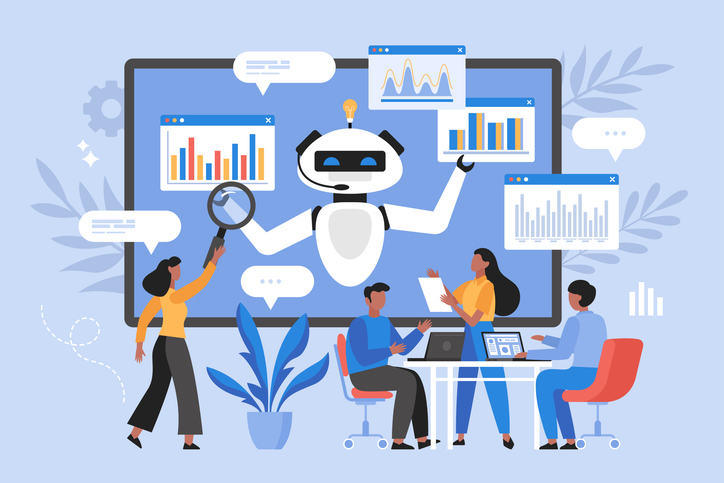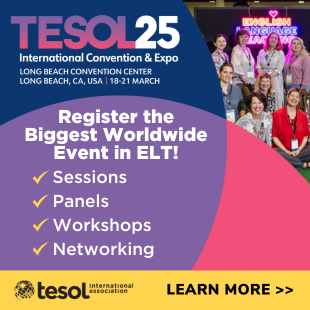
Survey after survey paints a concerning picture: most students feel unprepared for college or careers, while counselors and career advisors struggle to keep up.
Among recent high school graduates, 75% report feeling somewhat or totally unprepared for college and career, notes a recent YouScience report,1 while more than half of 2023 college graduates question their workforce readiness in Cengage Group’s annual “Employability Report.”2
Meanwhile, counselors are overworked3 and unevenly distributed4 and CTE teachers can be hard to find,5 according to a recent report from the Brookings Institution.
Let’s throw in these facts, too: many students aren’t getting work-based learning experiences like internships, and many aren’t accessing—or simply don’t have access to—counselors6 or career services.7 This comes at a time when students are rightfully concerned about how AI might change the labor market, as many employers are planning AI-related job cuts and encouraging employees to reskill.
So what can we do? How can we ensure that all students have access to the career support they need?
There is no single answer. But AI does offer us opportunities—if we get it right.
AI Can Help Students Make Better Career Choices
Limited or inconsistent access to counselors and career services is a major hurdle for high school and postsecondary students. Only one-third (33%) of 2023 high school graduates say they received enough exposure to career options.8 Half of college students, meanwhile, say they’ve used career services once or less,9 and when they do, they aren’t accessing services proven to be impactful,10 like network mapping and interview preparation.
Properly trained AI platforms are great at helping learners explore careers. Generative AI tools can facilitate career development in a number of ways, from career exploration to skill development to helping with resumes and interview prep. AI tools can coach students through filling out the FAFSA or starting a business. They can role-play specific situations for any job in any industry, helping to reinforce CTE learning, and make explicit connections between school subjects and careers that students are interested in. Tools built on large language models like ChatGPT, Gemini, and Claude can engage multilingual learners in dozens of languages, to varying degrees of proficiency. The convenience factor is also important: because AI is always available, it can fit into any schedule, including for the millions of students who are caregivers and/or work full or part time.
While there isn’t much research yet into using AI for career development, the research that does exist11 is promising.12 Our own recent survey of students on CareerVillage (one of the largest online platforms for career development) also offers a modest yet promising sign that students benefit from AI-enhanced career guidance.13
AI Can Reduce the Burden on Counselors and Educators
Counselor and CTE teacher shortages don’t just impact students; they impact educators, too. Larger workloads lead to burnout and churn. More time dedicated to students’ mental health care also means there’s less time for other critical activities, like college and career advising.14
AI can help educators and counselors in multiple ways, but the biggest benefit (at least at this stage) is that it can significantly reduce the knowledge-and-time burden on educators and counselors—by delivering the right resource and the right career development activity, at the right time, to every student.
No more wasting time searching the internet—career-focused AI tools, trained on high-quality data, can deliver personalized resources and career-development activities. Students can explore local career options, compare colleges and alternative pathways, and even get entrepreneurship advice that’s industry and state specific—all in one place. These tools are chat based at the moment but will soon expand to audio and video formats.
AI Will Accelerate Hiring Shifts That Benefit Historically Disadvantaged Job Seekers
It’s called the paper ceiling: the invisible barriers, like degree screens and stereotypes, blocking career opportunities for more than 70 million qualified job seekers without four-year college degrees.15 But there are encouraging signs this may be changing—a 2022 report from American Student Assistance and Jobs for the Future found that 81% of employers believe organizations should hire based on skills rather than degrees.16
In 2023, half of employers dropped degree requirements for entry-level positions, a 32% increase over 2022.17 Even more (66%) say they will prioritize soft skills and prior experience over degrees. While we’re a long way from sustained, wide-scale adoption of skills-based hiring,18 the attitude shifts are real, and the emergence of AI is a major reason: a majority of employers say they are rethinking and reprioritizing skills because of AI.
Skills-based hiring benefits job seekers who have taken nontraditional paths. And given that students from historically disadvantaged communities tend to take nontraditional paths more often than other students, it’s a good bet that skills-based hiring will also benefit those students.
Finally: We Need to Get It Right
More than 20 educational institutions, workforce development boards, and nonprofits have been working together since last July to help co-design and test an AI-powered career development platform.19 As our work has progressed, we’ve learned a few lessons that can be useful for anyone developing or implementing AI solutions for career readiness:
Always center the learner. AI tools should guide and support a learner’s development. We worry that AI products that “do it for you”—such as automatically building resumes or submitting job applications on your behalf—actually impede career development by depriving students of the unglamorous but necessary skills required to get jobs.
Collaboration is critical. Successful careers require networks of support, and AI tool building is no different: collaboration between educators, employers, and students ensures AI tools are unbiased and reflect real-world needs.
Educational and workforce partners can bring expertise to the tool’s design and identify high-quality data for an AI to train on. They can also help test the tool with a variety of populations to ensure widespread and robust feedback, which is critical to reducing bias and hallucination.
Responsible stewardship, not just development: Continuously monitoring and checking for bias in AI tools is crucial to ensure fairness and to bridge, not widen, equity gaps.
Educate users about the tool’s limitations. These tools are new. As many of us have seen, they will make mistakes and provide false or misleading information. It’s important to be clear about a tool’s limitations and to give users opportunities to build the critical skill of AI literacy. This could mean introducing “friction” into the experience—required onboarding, for example, that guides a user through an AI literacy module before they can engage with the tool. AI presents us with a unique opportunity to address the college and career readiness crisis. By responsibly leveraging AI for career education and support, we can ensure a future where everyone has the tools they need to thrive in the workforce.
Links
1/ www.youscience.com/post-graduation-readiness-report
2/ www.cengagegroup.com/news/press-releases/2023/cengage-group-employability-report
3/ www.nea.org/nea-today/all-news-articles/schools-need-more-counselors
4/ www.schoolcounselor.org/getmedia/a988972b-1faa-4b5f-8b9e-a73b5ac44476/ ratios-22-23-alpha.pdf
5/ www.brookings.edu/articles/career-and-technical-education-is-a-hidden-weak-spot-in-many-high-schools-teacher-workforces
6/ www.schoolcounselor.org/getmedia/a988972b-1faa-4b5f-8b9e-a73b5ac44476/ ratios-22-23-alpha.pdf
7/ www.insidehighered.com/news/student-success/life-after-college/2023/11/30/survey-what-college-students-want-career
8/ https://resources.youscience.com/rs/806-BFU-539/images/2023_PostGraduationReadinessReport_PartOne. pdf
9/ www.insidehighered.com/news/student-success/life-after-college/2023/11/30/survey-what-college-students-want-career
10/ www.naceweb.org/career-development/organizational-structure/the-value-of-career-services
11/ www.sir.advancedleadership.harvard.edu/articles/using-artificial-intelligence-to-navigate-the-new-challenges-of-college-and-career
12/ https://journals.plos.org/plosone/article?id=10.1371/journal.pone.0270255
13/ www.careervillage.org/articles/insights/learners-embrace-ai-advice-but-want-ethical-use
14/ https://nces.ed.gov/surveys/spp/results.asp#mentalhealth-march24-chart3
15/ www.tearthepaperceiling.org/the-paper-ceiling
16/ https://expandopportunities.org/wp-content/uploads/2022/10/ASA_JFF_ Degrees-of-Risk-.pdf
17/ www.cengagegroup.com/news/press-releases/2023/cengage-group-employability-report
18/ www.burningglassinstitute.org/research/skills-based-hiring-2024
19/ www.careervillage.org/articles/cv-updates/ai-career-coach-coalition-joint-statement-on-the-application-of-ai-in-career-development
Jared Chung is the founder and executive director of CareerVillage.org, a nonprofit dedicated to democratizing access to career information and advice for underrepresented people. CareerVillage has recently expanded to become a multiservice organization with the development of the new AI Career Coach platform.





